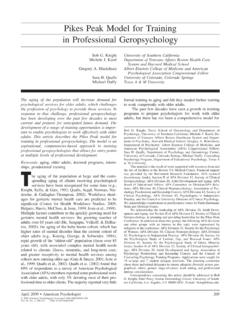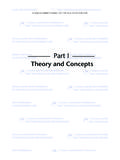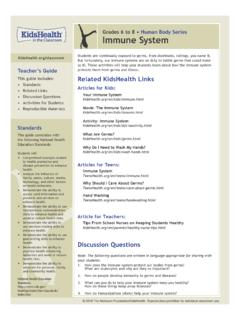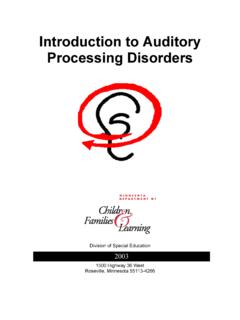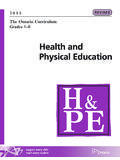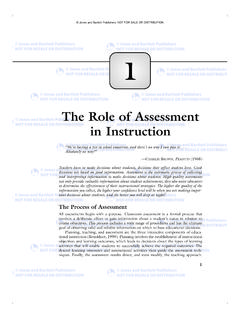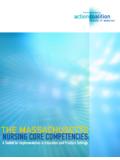Transcription of CORE COMPETENCIES OF NURSE EDUCATORS …
1 _____ Copyright 2005. National League for Nursing. All Rights Reserved core COMPETENCIES OF NURSE EDUCATORS WITH TASK STATEMENTS Competency 1 Facilitate Learning NURSE EDUCATORS are responsible for creating an environment in classroom, laboratory, and clinical settings that facilitates student learning and the achievement of desired cognitive, affective, and psychomotor outcomes. To facilitate learning effectively, the NURSE educator: Implements a variety of teaching strategies appropriate to learner needs, desired learner outcomes, content, and context Grounds teaching strategies in educational theory and evidence-based teaching practices Recognizes multicultural, gender, and experiential influences on teaching and learning Engages in self-reflection and continued learning to improve teaching practices that facilitate learning Uses information technologies skillfully to support the teaching-learning process Practices skilled oral.
2 Written, and electronic communication that reflects an awareness of self and others, along with an ability to convey ideas in a variety of contexts Models critical and reflective thinking Creates opportunities for learners to develop their critical thinking and critical reasoning skills Shows enthusiasm for teaching, learning, and nursing that inspires and motivates students Demonstrates interest in and respect for learners Uses personal attributes ( , caring, confidence, patience, integrity and flexibility) that facilitate learning Develops collegial working relationships with students, faculty colleagues, and clinical agency personnel to promote positive learning environments Maintains the professional practice knowledge base needed to help learners prepare for contemporary nursing practice Serves as a role model of professional nursing _____ Copyright 2005.
3 National League for Nursing. All Rights Reserved Competency 2 Facilitate Learner Development and Socialization NURSE EDUCATORS recognize their responsibility for helping students develop as nurses and integrate the values and behaviors expected of those who fulfill that role. To facilitate learner development and socialization effectively, the NURSE educator: Identifies individual learning styles and unique learning needs of international, adult, multicultural, educationally disadvantaged, physically challenged, at-risk.
4 And second degree learners Provides resources to diverse learners that help meet their individual learning needs Engages in effective advisement and counseling strategies that help learners meet their professional goals Creates learning environments that are focused on socialization to the role of the NURSE and facilitate learners self-reflection and personal goal setting Fosters the cognitive, psychomotor, and affective development of learners Recognizes the influence of teaching styles and interpersonal interactions on learner outcomes Assists learners to develop the ability to engage in thoughtful and constructive self and peer evaluation Models professional behaviors for learners including, but not limited to, involvement in professional organizations, engagement in lifelong learning activities, dissemination of information through publications and presentations, and advocacy _____ Copyright 2005.
5 National League for Nursing. All Rights Reserved Competency 3 Use Assessment and Evaluation Strategies NURSE EDUCATORS use a variety of strategies to assess and evaluate student learning in classroom, laboratory and clinical settings, as well as in all domains of learning. To use assessment and evaluation strategies effectively, the NURSE educator: Uses extant literature to develop evidence-based assessment and evaluation practices Uses a variety of strategies to assess and evaluate learning in the cognitive, psychomotor, and affective domains Implements evidence-based assessment and evaluation strategies that are appropriate to the learner and to learning goals Uses assessment and evaluation data to enhance the teaching-learning process Provides timely, constructive.
6 And thoughtful feedback to learners Demonstrates skill in the design and use of tools for assessing clinical practice _____ Copyright 2005. National League for Nursing. All Rights Reserved Competency 4 Participate in Curriculum Design and Evaluation of Program Outcomes NURSE EDUCATORS are responsible for formulating program outcomes and designing curricula that reflect contemporary health care trends and prepare graduates to function effectively in the health care environment. To participate effectively in curriculum design and evaluation of program outcomes, the NURSE educator.
7 Ensures that the curriculum reflects institutional philosophy and mission, current nursing and health care trends, and community and societal needs so as to prepare graduates for practice in a complex, dynamic, multicultural health care environment Demonstrates knowledge of curriculum development including identifying program outcomes, developing competency statements, writing learning objectives, and selecting appropriate learning activities and evaluation strategies Bases curriculum design and implementation decisions on sound educational principles, theory, and research Revises the curriculum based on assessment of program outcomes, learner needs.
8 And societal and health care trends Implements curricular revisions using appropriate change theories and strategies Creates and maintains community and clinical partnerships that support educational goals Collaborates with external constituencies throughout the process of curriculum revision Designs and implements program assessment models that promote continuous quality improvement of all aspects of the program _____ Copyright 2005. National League for Nursing. All Rights Reserved Competency 5 - Function as a Change Agent and Leader NURSE EDUCATORS function as change agents and leaders to create a preferred future for nursing education and nursing practice.
9 To function effectively as a change agent and leader, the NURSE educator: Models cultural sensitivity when advocating for change Integrates a long-term, innovative, and creative perspective into the NURSE educator role Participates in interdisciplinary efforts to address health care and educational needs locally, regionally, nationally, or internationally Evaluates organizational effectiveness in nursing education Implements strategies for organizational change Provides leadership in the parent institution as well as in the nursing program to enhance the visibility of nursing and its contributions to the academic community Promotes innovative practices in educational environments Develops leadership skills to shape and implement change _____ Copyright 2005.
10 National League for Nursing. All Rights Reserved Competency 6 - Pursue Continuous Quality Improvement in the NURSE Educator Role NURSE EDUCATORS recognize that their role is multidimensional and that an ongoing commitment to develop and maintain competence in the role is essential. To pursue continuous quality improvement in the NURSE educator role, the individual: Demonstrates a commitment to life-long learning Recognizes that career enhancement needs and activities change as experience is gained in the role Participates in professional development opportunities that increase one s effectiveness in the role Balances the teaching, scholarship, and service demands inherent in the role of educator and member of an academic institution Uses feedback gained from self, peer, student.
